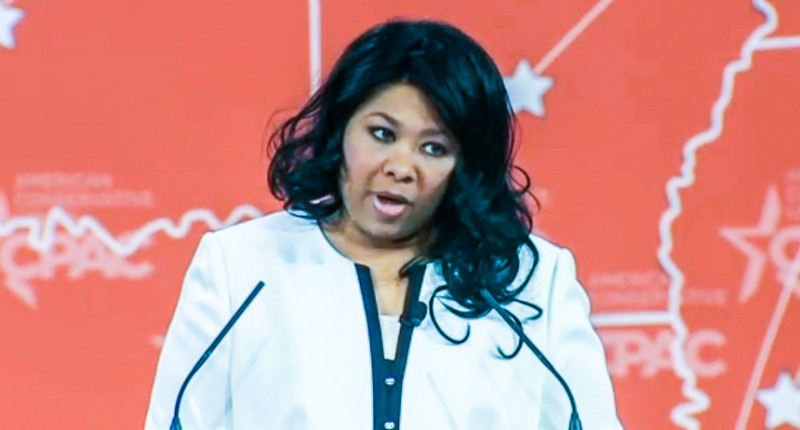
Jamila Bey: Not all Conservative Republicans are Christian
- By Alison Lesley --
- 25 Mar 2015 --

Atheist Jamila Bey illustrates through CPAC speech that being a Republican is about more than being a Christian and warns not to ignore secular conservative republicans.
Republicans saw the face of change at February’s Conservative Political Action Conference (CPAC), as American Atheist representative Jamila Bey addressed the crowd. Bey is a millennial female as well as an African-American conservative—and the first atheist to speak at this conference that typically serves as the political gathering place for religious conservatives.
“Change never happens overnight, but it does happen—with same inevitability as the rising and setting of the sun.”
The American Atheists group has been trying to find their place at the conservative table since last year, when organization president David Silverman found himself disinvited from giving an address in the wake of a statement that caused an uproar among religious conservatives. In an interview with CNN, he had acknowledged, “the Christian right should be threatened by us.”
Silverman later clarified his point, which was to illustrate the distinction needed between religious conservatives and political conservatives. Often, Christians and Republicans are seen as one and the same; but the political party needs the contributions of other religious and secular groups as well, in order to adequately advocate for conservative values while representing the changing face of America.
Atheists have a vested interest in pursuing inclusion in the Republican Party. If the GOP successfully excludes everyone but Christians from its ranks, it essentially leaves religiously nonconforming conservatives with no voting choice. The Democratic Party is left with an uncontested ticket that amounts to a monopoly. Hence the need, according to Silverman, is for someone to work from within to remind party leadership that Republicans represent more than just Christians.
As millennials come of age in America, they bring a demographic that includes nearly 68 million votes. Of that number, one-third self-identify as secular or unaffiliated with any religious group. In the battle for political votes, the Republican party is faced with a choice: figure out how to court the unaffiliated while retaining the religious core of the party, or lose out on the ability to retain relevance, money, and political office.




















